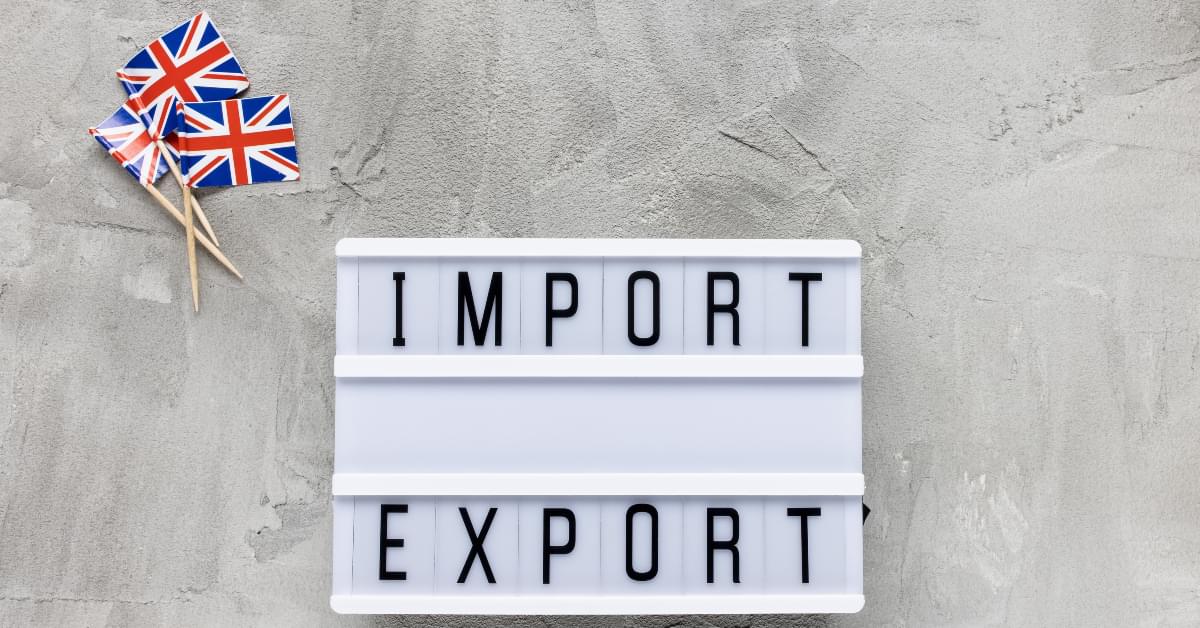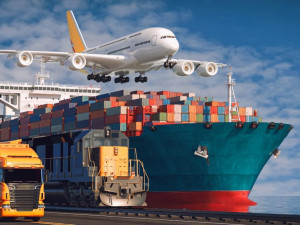
Inflation has become an ongoing issue for global economies. Inflation has impacted prices for raw materials which inturn has meant higher costs for importing goods. This has caused further challenges to import & export goods in the UK. The UK in particular has been impacted negatively by external factors during the current cost for living crisis.
The increase in prices for goods and services is having an impact on both businesses and consumers. Finding ways to reduce inflation’s impact on your financial budget is highly beneficial. Although not all additional costs can be avoided, having a strategy in place can ensure you can protect your bottom line.

How consumers are being impacted by higher prices
Decreased purchasing power
Due to a rise in inflation, consumers have less disposable income in order to purchase goods and services. The impact which inflation has on import & export usually leads to higher prices for businesses from suppliers. These additional costs are then passed onto consumers through price increases for products or services.
This has an adverse effect on demand as the average consumer isn’t able to purchase the same quantity of goods as previously. As a result, consumers will attempt to spend more on essential items such as food and energy bills and spend less on luxury goods.
Rising cost of living
The cost of living in the UK has been severely impacted by inflation. UK inflation in April was recorded at 9% which is a 40-year high. As a result of higher prices for goods and services, consumers will look to purchase cheaper alternatives.
Additionally, there likely will be an increase in imported goods which are purchased by consumers. This partially depends on the currency exchange rate between the UK market competitiveness compared to other countries.
Fuel prices alongside food have continued to rise over several months, resulting in a financial strain on households. Due to external factors, prices for fuel and energy have increased substantially in the UK. Additionally, The UK and other major countries internationally are currently facing an economic downturn. Nonetheless, the UK government has several options to help households during the current economic climate, such as the windfall tax and cuts to VAT.
Less benefits for savers
Since inflation causes the price of goods and services to increase, this usually results in lower value for savers. Ultimately, with the inflation rate rising, savers are effectively losing value as they can buy less with the same amount of money.
Having an emergency fund is still advisable and can help weather the economic storm of recent months. During an economic downturn it’s advisable to clear debts and limit borrowing, especially since interest rates haven’t shown any signs of lowering.
Current trade relations between UK & EU
Lower competitiveness for UK in export market
Due to mostly external factors, the UK is facing economic challenges. This is causing the competitiveness of Sterling to lower in comparison to other major currencies such as the US Dollar and euro.
Currency fluctuations have occurred over recent months as a result of inflation and external factors within Europe. Consequently, this has impacted trades amongst the UK and countries within the eurozone. Imports from non-EU countries have been higher than imports from EU countries over the past 11 months, according to the ONS.
Market uncertainty
Inflation causes a lot of uncertainty within the markets during the short term. The Bank of England has attempted to increase interest rates as a means to lower the inflation rate. Currently, this has been to no avail as it looks like the UK economy could be moving towards a recession.
Supply chain issues continue to be significant as fuel and energy prices rose by 54% in April 2022. As it’s difficult to forecast what the next 6-12 months will entail, businesses in the UK should be prepared for further cost increases for importing goods over the short term.

The economic impact inflation is having on UK import and export for businesses
Labour costs fluctuations
Import and export have hit specific industries harder than others due to shortages. Industries such as food, manufacturing and machinery have been hit and seen supply shortages due to the current economic slowdown. Usually lower supply and higher demand will correlate to higher labour costs for skilled workers. Nonetheless, this hasn’t occurred in the UK economy over recent months. Instead, there has been a decrease in real wages by 1% between December 2021 and February 2022.
Cost-push inflation is causing the price of imported raw materials to increase and taxes to rise. Employee pay rises are also currently lagging behind inflation which is a main contributor towards the decrease in real wages. For businesses, hiring costs alongside employee salaries are usually big expenditures. With continued market fluctuations, businesses could see real wages increase slightly in Q3 or Q4 this year as inflation peaks around 10%.
Supply chain disruptions
The rising cost of food products, transport equipment and metals means that manufacturers pass on the higher costs onto consumers. Due to the shortage of goods and services this has caused supply chain disruptions. This has impacted import & export over recent months, due to external factors such as the Russia-Ukraine conflict.
Specific industries have been affected more than others and have been a cause of concern for businesses and consumers. The UK automotive output decreased by 100,000 cars in Q1 during 2022 as car production has been impacted by global supply chain problems. During economic challenges, business owners will need to find new ways of paying suppliers, employee salaries and invoices in order to cut costs.
From an operational standpoint, it can be difficult for firms to pay for supplies during a short term period. Therefore, planning in advance can be beneficial as well as cost effective. Setting up a forward contract can be a great option to limit market disruption and stay on top of your budget by removing uncertainty.
How our money transfer services can help you
With the current uncertainty within the markets, it’s important to think ahead of your business activities and organise payment for your import & export. Whether you’re looking to pay invoices to your suppliers or organise a mortgage payment, utilising online tools at CurrencyTransfer would be a good idea.
Additionally, once you open an account with CurrencyTransfer, you’re allocated a personal relationship manager who will help you with your unique currency transfer requirements. Don’t hesitate to contact us if you need further information.
Omari Coates
Copywriter
Florence Couëdel
Editor



